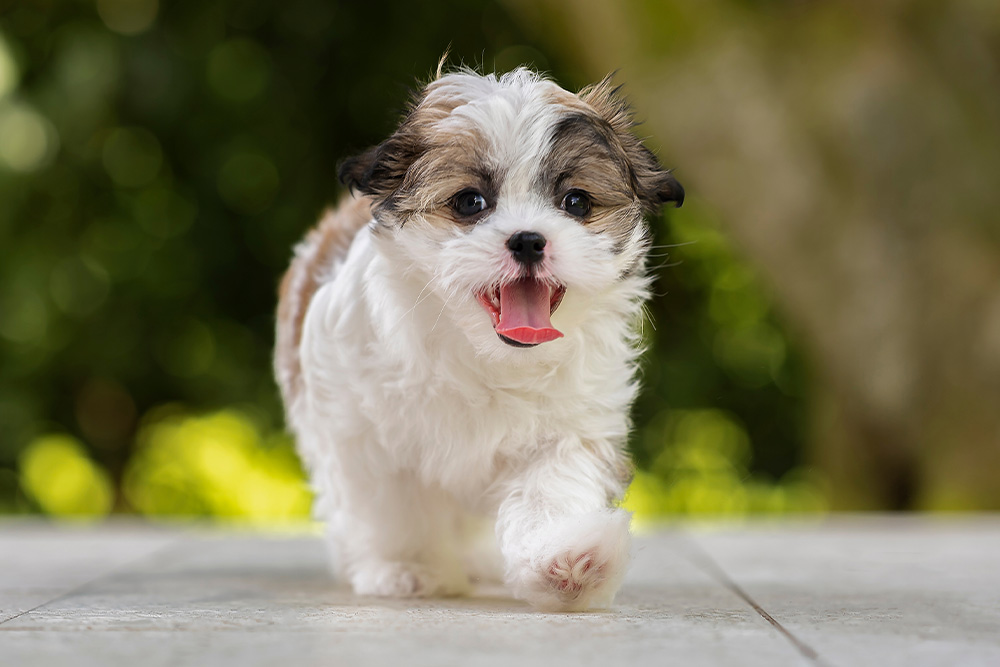Bichon Frise
A dog breed is a specific population of domestic dogs with similar anatomical features and behavior characteristics. Selecting the proper breed for the owner’s lifestyle, including the requirements and expectations, is key to living harmoniously with your dog. Bichon Frise dogs are thus also special and have their characteristics when it comes to appearance and character.
If you want to have a dog of this type, check out the key facts on the subject. In this article, we will guide you through various important points like the history of Bichon Frise, the diseases these dogs commonly suffer, and care rules. Potential buyers of purebred dogs should think about their lifestyle and what conditions they can offer the pooch. Can a Bichon Frise be your friend? Learn whether this is the breed for you.
Appearance
This breed can certainly turn some heads when it comes to looks! The bichon frise is a charming little furry friend that is instantly recognizable by its fluffy fur coat. Their thick, curly fur makes them look like little clouds on four legs. They have a two-layer coat. This makes the Bichon Frise fur relatively hypoallergenic as very little can touch their fur compared to other dogs, so fewer people are allergic. The Bichon Frise is typically all-white in color, with slight cream tones possible.
The Bichon Frise does not reach a large size. They are good for people who want small or medium-sized pets. The dogs have curvacious, proportional bodies that look miniature and dainty. They have short muzzles, well-defined noses, and a soft expression. They have a unique, friendly look to them with their eyes set so close together. The ears are drooping and enshrouded in long, drown curls. The dogs will simply gain the trust of children and even arouse their curiosity since they will resemble soft plush toys.
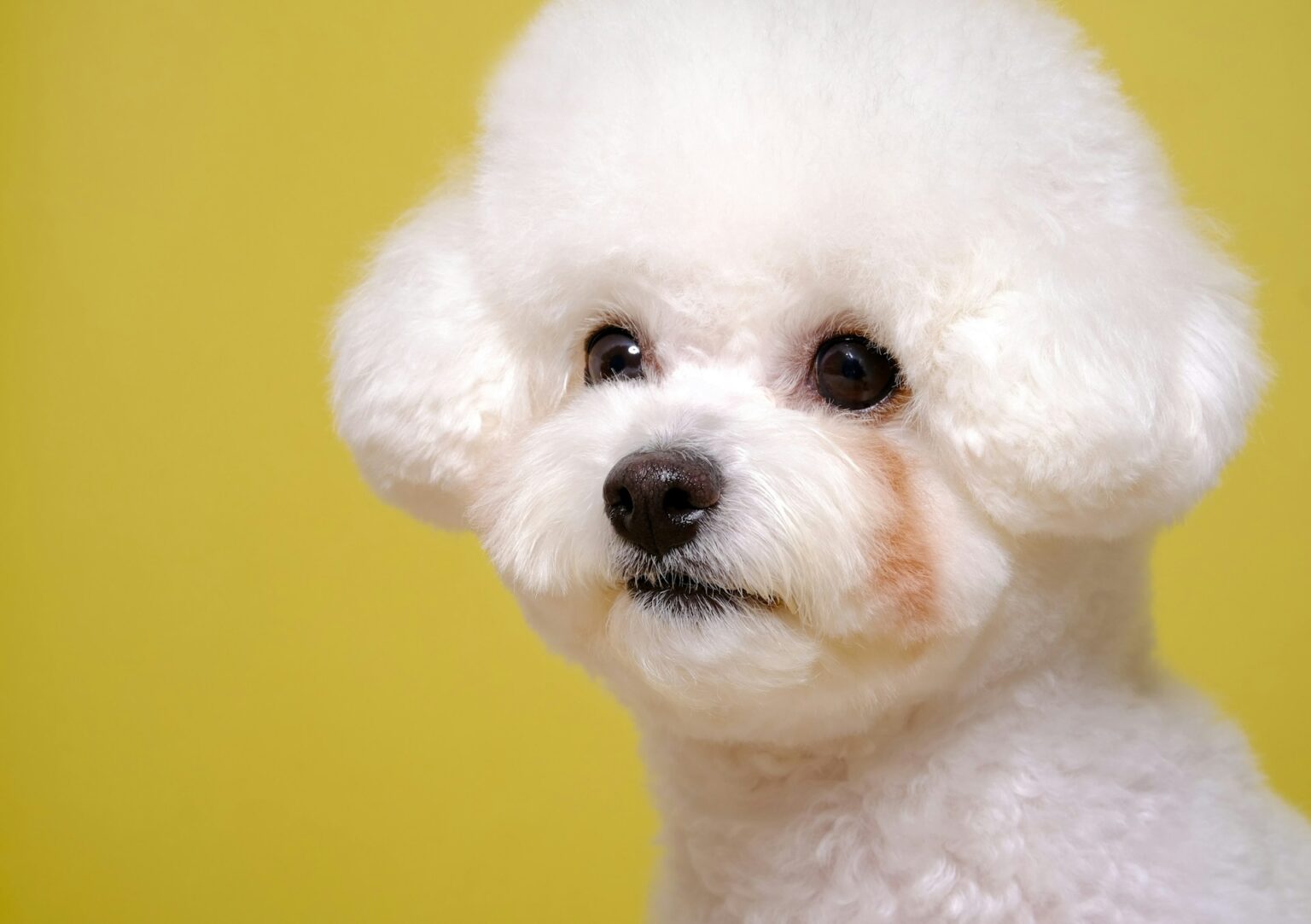
Bichon Frise Breed History
Bichon Frise has a very long history. Its origin may be in the 13th century when they were bred in the Canary Islands. Originally, the French name ‘Bichon,’ meaning ‘little dog.’ The breed soon found popularity in France, where it was a noted favorite of the aristocracy. They looked like poodles, and their looks soaked up the adoration of the rich people who spoiled them.
They were seen in a lot of paintings, giving way for people to recognize them, which made Bichon Frises a famous dog breed during their time. The breed had already become known in Europe by the 18th century and was often represented at royal courts.
But these poor little pets had to endure much harsher living conditions in the wake of the French Revolution. Bichon Frise dogs were lumped on the street when the French nobles were abolished. Some of those were taken into lower social classes. These events might have led to the death of the breed — fortunately, it did not, and in subsequent years, it kept on developing and maximizing in recognition.
The American Kennel Club (AKC) officially recognized the breed in 1933. Similar to the Maltese and Havanese, these dogs are part of the Bichon group. Today, the Bichon Frise breed is one of the most popular dogs with cheerful disposition and gregarious personality.
Bichon Frise Personality
With a friendly temperament, Bichon Frise dogs are beautiful and happy animals. They are incredibly social pets and naturally bond to their owners quickly. This breed is suitable for families with children, where the dogs can enjoy constant contact with people. Bichons tend to be quite affectionate and require a fair bit of time and attention focused on them. These animals require regular socialization and contact with people. Otherwise, they are likely to get depressed or vandalize things if unsupervised for too long. They are tolerant of other animals, as well. They literally are a delight to have in any household with their upbeat personalities.
These canines have a talent for entertaining their owners with funny behavior. Children love them mostly because they can play with them, be mischievous, have fun, and bring cheerful energy. In addition, Bichon Frises are very smart. As a result, training them is simple. They make the perfect first-time dog owner due to their willingness to learn new commands and tricks. They also can be brave. Although gentle, they will often stand watch over their territory and be good watchdogs. In summary, Bichon Frise are happy, friendly, and smart dogs that do well in a family setting.
Bichon Frise Health
It is said that purebred dogs are more prone to all kinds of hereditary diseases than mixed-breed dogs without pedigree. The reason for that is one limited gene pool, which increases the risk for all kinds of genetic diseases. So, if you do pick a particular breed, you need to learn about the disease’s dangers so that you can take preventive measures later on.
A breeder with genetic and health tests on dogs that help recognize future problems would also be a good idea. Good breeders should have test results and information about the parents’ health of the puppies they are breeding. Consulting a vet is also smart before purchasing a purebred dog for further information on risk factors. In the end, selecting the ideal canine is far less a matter of looks and far more a matter of the dog’s health and happiness. Remember this while buying a new puppy. Read below about some diseases that can affect a Bichon Frise.
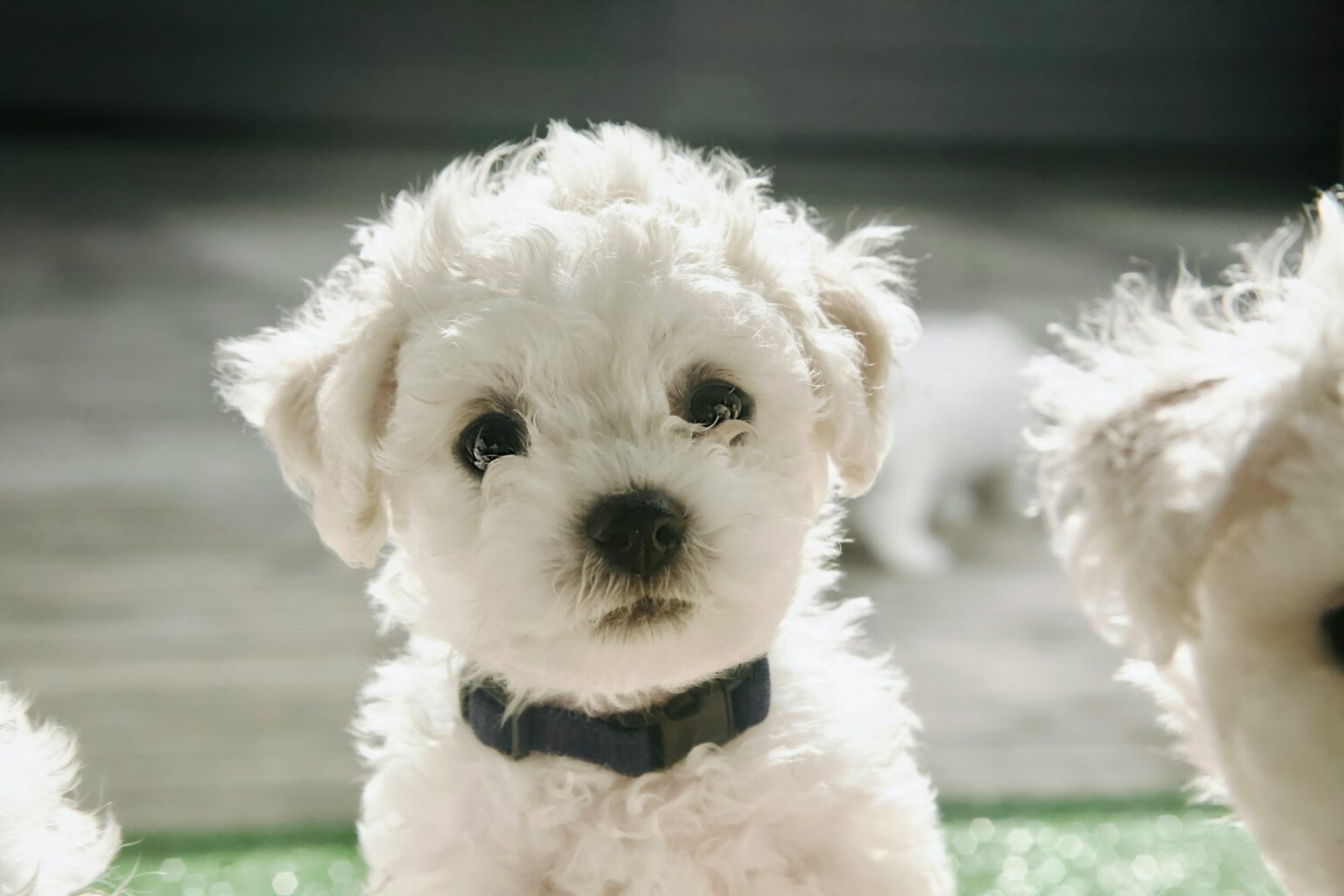
Eye Problems
Congenital eye defects may affect some Bichon Frise dogs. For a very near example, cataracts are of such a condition. It is similarly characterized by the clouding of the lens of the eye. When you look at the eye of the dog, you might notice a haze on that eye. You might also see other red flags, such as dogs losing interest in play and clumsiness in their movement. Since primary cataracts are the most common inherited eye problem in pedigree dogs, it is sensible to be on the lookout for the disease.
Neurological Diseases
Bichon Frise can suffer from neurological diseases. Examples of such medical conditions include dyskinesia. These central nervous system disorders lead to involuntary movements in the dog. This happens in the form of episodes during the consciousness of the dog. Different disorders can also arise, corresponding to the specific areas of the brain that are damaged, each presenting distinct symptoms.
Seizures, incoordination, tremors, weakness, or excessive sleep are general neurological signs that you can see in dogs and cats with brain disease. If you see this kind of behavior in your Bichon Frise, speak to a vet. The canine neurological disease severely disrupts the function of dogs, bringing considerable suffering to their lives. Your furry companion may need treatment and a change in lifestyle to deal with the illness.
Skin Problems
The fur of the Bichon Frise dog needs good care; otherwise, there are problems with the skin. The dogs are susceptible to allergies that present with skin signs. Your dog’s skin may become red and inflamed. They may scratch and bite the areas because of itching. Breeds such as Bichons are also prone to alopecia when it comes to congenital skin issues. These canines can shed fur, leading to reduced hair density. Owners see it as bald patches on the skin of their dogs.
Sadly, though, this type of hereditary skin disease is hard to treat, and in these scenarios, dogs are susceptible to even more skin conditions. However, the positive side is that alopecia is a non-life-threatening disease.
Musculoskeletal Disorders
Various problems related to their short legs can also affect these small dogs. Patellar luxation is one of the most often seen conditions in dogs. A few of these inherent causes of patellar dislocation comprise loose ligaments and irregular joint formation. This orthopedic issue can make the dog limp. Movement issues hinder dogs from participating in daily activities. Obesity or incorrectly balanced exercise can also make a dog more susceptible to dislocated kneecaps. To prevent this, Bichon Frise’s owners must provide their dogs with healthy food and a safe environment for exercising.
Heart Defects
Another genetic issue is a heart defect that can occur in Bichon Frise dogs. Heart defects may result in serious complications like heart failure. These abnormalities can be identified during vet inspections. Dogs may also pant and become breathless, particularly following exertion. Another key symptom is fainting as well. Under these circumstances, keep in mind that surgery may be necessary, so be on the lookout for symptoms and do not take the problem lightly because heart ailments in dogs can cause them to die ahead of time.
Bichon Frise Care
When considering a purchase, dog owners should understand the needs of the dog breed. Bichon Frise is a breed that needs special attention and care. The first step is to give these dogs a safe space. Think about your living environment and whether you have the space to accommodate this breed. Prepare yourself by knowing what a Bichon should eat. Your lifestyle also matters. Are you fond of physical exertion or quite the other way around? This relates to the amount of energy your dog will require.
For the Bichon Frise breed, grooming their coat is vital to care. Determine if you can dedicate time and money to the maintenance of its coat. All in all, when considering a Bichon Frise for your pet, take the time to learn about their needs and requirements before proceeding to purchase one. The right knowledge and commitment are key to ensuring a happy and healthy life for our four-legged friends. Is there room in your heart for a Bichon Frise? See for yourself.
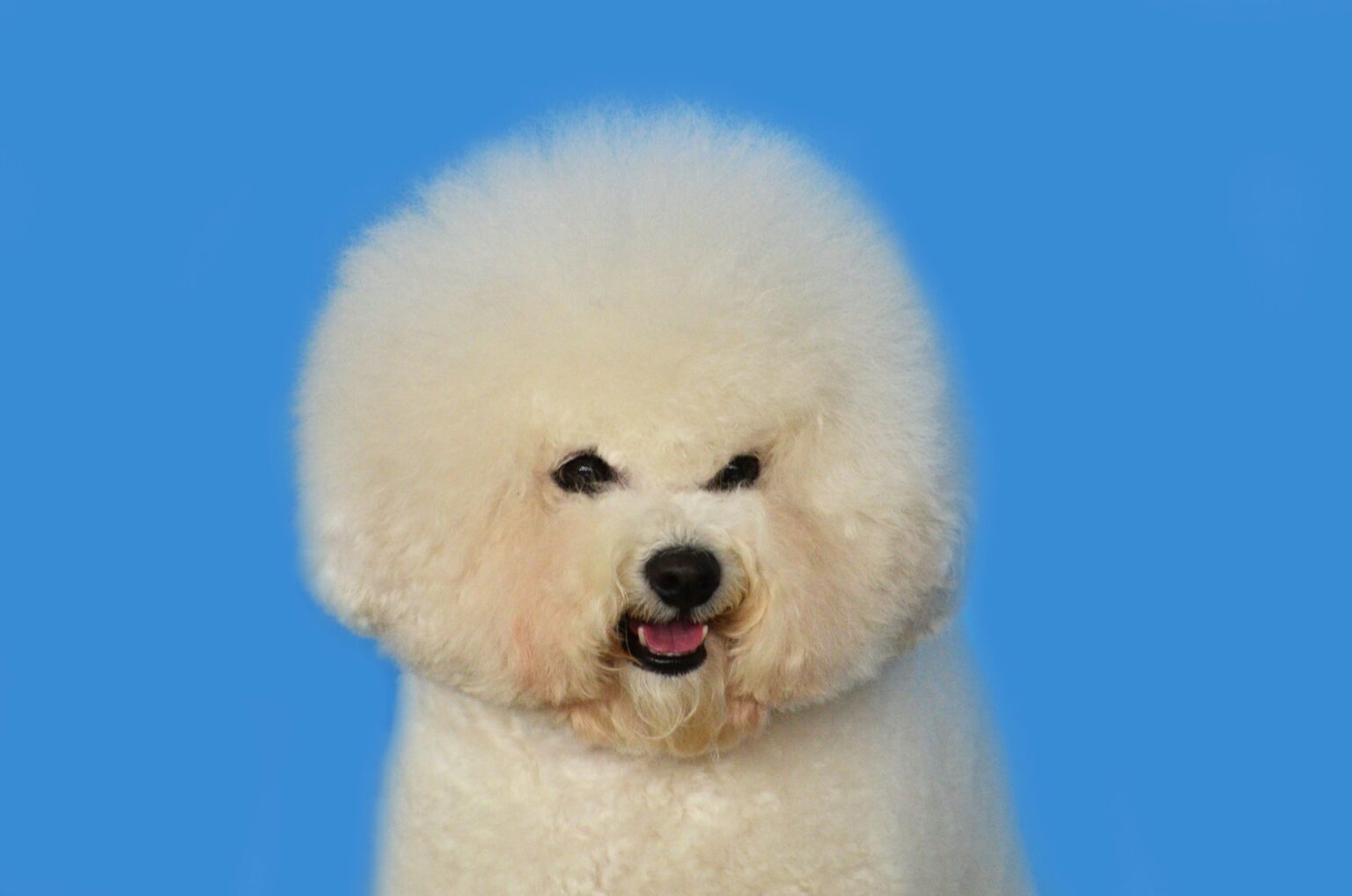
Safe Environment
The Bichon Frise is an adorable, small, sociable creature who is happiest in a warm, friendly, and peaceful atmosphere. Since they are small dogs, this environment can be offered to them in a house with a backyard and in a small apartment. But they need room, a bed to sleep in, and a place to play. Remember that Bichon Frises are active dogs, so they must go out to play regularly to stay in both physical and mental shape. The temperature should be neither too hot nor too cold in their habitat. Bichons can be subject to allergies, so the home should be kept clean and irritants avoided. The dogs also have a light-coloured coat that can get dirty quickly.
Bichon Frises especially needs a lot of company and affection. They are very sociable dogs and require regular human interaction. It is very saddening to leave them alone at home for long hours, which can cause abnormal changes in mood and behavioral problems. Bichon Frises thrive in families where there are children and parents who have time to spend with them and look after them. They tend to be friendly toward other household pets, so these dogs also appreciate other animals.
Diet and Nutrition
Bichons are smaller in body size, so they have lower calorie needs, but that doesn’t mean they can eat whatever they want. Therefore, make sure their diet is full with essential nutrients. When selecting the food, it is good to notice its composition as well as the vitamins and minerals necessary in appropriate proportions so that the little ones have sufficient activity and health.
Keep in mind that correct nutrition allows for a better life span and quality of life for our small pets. In particular, in puppy breeding, we also take into account that between purebred dogs, due to their genetic reasons, they are more prone to various diseases. Their tendency to be allergic is a good reason to avoid some foods containing artificial additives and preservatives. Frequent little portions of regular foods will help them control their weight. And please never forget to give clean water and, if needed, contact a vet to tailor it to individual requirements based on the dog.
Physical Activity
The Bichon Frise is a small, lively ball of energy that thrives on activity. Regular exercise keeps their body and mind ready, alert, and healthy. While they are not overly demanding dogs, these canines require exercise every day to prevent them from displaying naughty behavior.
Walking is the most suitable activity for Bichon Frise. These curious creatures love to check out what is happening around them, smell the scents, and meet other dogs. They should be taken on longer runs to the park to have a proper run-around. But do not overdo it and exhaust your pet. The walks should not be too long or too tiring. Also, Bichon Frises are perfect companions for playing fetch. Due to exuberance and willingness to work, they can spend hours catching balls.
Grooming
Grooming is, in fact, one of the most important parts of care for the Bichon Frise. These dogs have low, long, and thick fur, so they require special care. Bichon Frises require regular haircuts to prevent the thicket of fur from growing too dull and to maintain the length. Dog groomers use special cutting techniques to keep the structure and volume of their hair. Regular brushing is essential to prevent mats. Thus, use the unique types of brushes that match the kind of the Bichon Frise coat in which you can get rid of the dead hair.
It is recommended by professionals that regular baths be taken using a gentle, moisturizing shampoo that is safe for Bichon Frise’s skin. Baths assist in maintaining the cleanliness of the fur and skin and eliminate unpleasant smells. The fur should be completely dried after bathing. Bichon Frise often gets dirt in their ears and tear stains around their eyes, so you need to clean them regularly.
Training
Bichon Frise is a fairly docile dog, yet they, too, require training. They bark a lot when not getting enough attention. But they are intelligent creatures that learn quickly. Consistency, positive reinforcements, and patience are the keys to raising this breed. When you begin training early, the basic commands and rules of behavior will be simple to learn because your dog will be a puppy, and this is when it is easiest for them to learn.
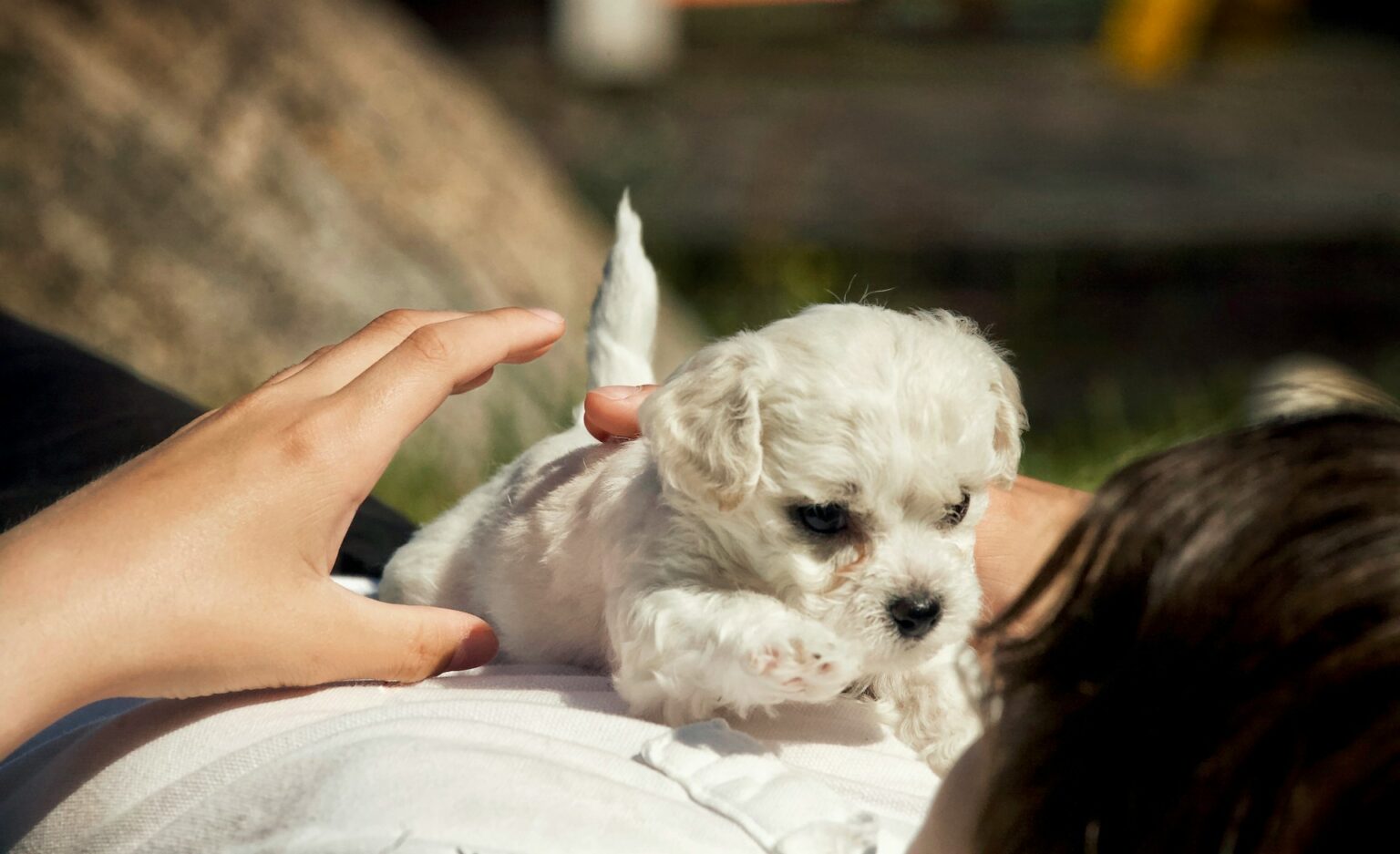
Bichon Frise Breed FAQs
Do you have all the information about Bichon Frise that you need? If not, check out the FAQ part.
How Much Does a Bichon Frise Cost?
Bichon Frise puppies can cost up to 3,000 dollars. The breeder determines the cost. However, it is best to ensure that you purchase the dog from a reputable breeder.
What Size Is Bichon Frise?
Bichon Frise dogs are not large, even as adults. They typically weigh under 6kg and stand under 30cm tall.
How Long Does a Bichon Frise Live?
The average lifespan of Bichon Frisse dogs is a bit longer than the typical or average dog, at 12-15 years of age.
Summary
Of all of the dog breeds, Bichon Frise dogs are some of the most stunning. When you know more of this breed you will discover they are friendly and cheerful dogs. Could you be a good owner for them? Now you know!
Source
- A. M. Oberbauer, J. M. Belanger, T. Bellumori, D. L. Bannasch, T. R. Famula (2015). Ten inherited disorders in purebred dogs by functional breed groupings.
https://pmc.ncbi.nlm.nih.gov/articles/PMC4579393/
- Bichon Frise
- Appearance
- Bichon Frise Breed History
- Bichon Frise Personality
- Bichon Frise Health
- Eye Problems
- Neurological Diseases
- Skin Problems
- Musculoskeletal Disorders
- Heart Defects
- Bichon Frise Care
- Safe Environment
- Diet and Nutrition
- Physical Activity
- Grooming
- Training
- Bichon Frise Breed FAQs
- How Much Does a Bichon Frise Cost?
- What Size Is Bichon Frise?
- How Long Does a Bichon Frise Live?
- Summary
